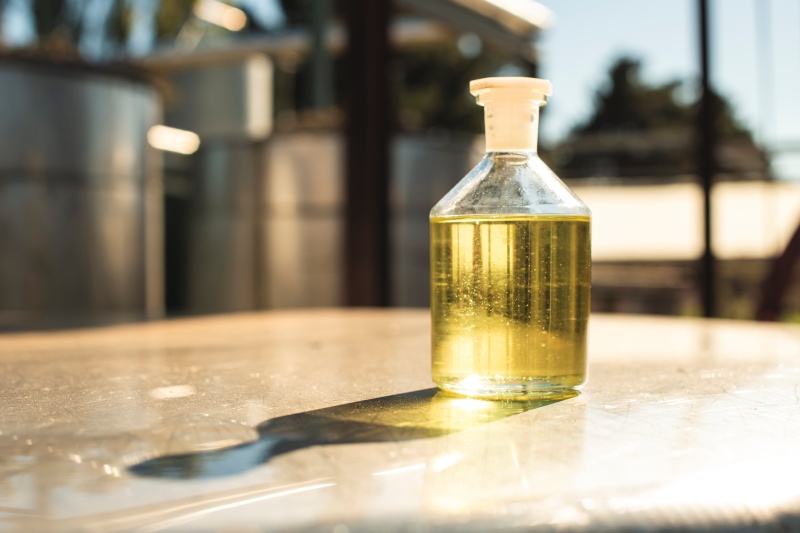Deodorants have become integral to today’s personal hygiene essentials, ensuring comfort and odour control throughout the day. However, traditional deodorants on the market contain chemicals and synthetic fragrances that can harm the skin and overall health. This has led to a growing interest in natural alternatives, and one such option gaining popularity is mānuka oil.
What Is Mānuka Oil?
Mānuka oil is a recently introduced botanical ingredient in the Personal Care Market. It is an essential oil derived through steam distillation from the leaves of the Leptospermum scoparium tree, which is indigenous to both New Zealand and Australia.
An Overview of Traditional Deodorants
In recent years, concerns have arisen about the ingredients found in traditional deodorants and antiperspirants. These products often contain aluminium compounds, parabens, and artificial fragrances, which can potentially harm the skin and contribute to various health issues:
- Aluminium Compounds: Traditional deodorants often contain aluminium compounds that can block sweat glands, potentially leading to skin irritation and health concerns.
- Parabens: Parabens are synthetic preservatives found in many commercial deodorants and have been linked to hormone disruption and other health issues.
- Artificial Fragrances: Synthetic fragrances can cause skin allergies and irritations, and their long-term effects on health are not well understood.
Mānuka Oil as a Key Ingredient for Natural Deodorants

An analysis of the MINTEL Global New Products Database (GNPD) indicates substantial market potential for products that incorporate mānuka oil, particularly within the Deodorant and Soap & Bath categories.
The cause of body odour is attributed to an enzyme known as C-T lyase, which is present in the bacterium Staphylococcus hominis, commonly found in human armpits. These bacteria consume odourless compounds present in sweat and subsequently transform them into thioalcohols, a potent and unpleasant-smelling compound responsible for the characteristic odour.
Mānuka oil can be a key ingredient for natural deodorants and is also used as a natural deodorant itself by repelling odour-causing bacteria that thrive on perspiration. While sweat itself lacks any discernible odour, the emergence of unpleasant smells can be attributed to the proliferation of bacteria.
This explains why some individuals continue to struggle with persistent body odour despite adhering to a daily hygiene routine that includes showering and the use of conventional deodorants. The intensity of body odour tends to escalate in tandem with increased sweat production, as it provides a fertile environment for odour-causing bacteria to thrive.
An effective solution to mitigate this potentially embarrassing issue involves the regular application of mānuka essential oil to the skin.
A recommended starting point is to use mānuka oil that has been appropriately diluted to a concentration range of 0.03% to 0.05%. This dilution helps safeguard against potential skin irritation that may arise due to the potent properties of mānuka oil.
Mānuka Oil Deodorants for Consumers
Here are a few New Zealand-based brands that use mānuka oil as a key ingredient in their deodorant:
- Seed2Skin Mānuka and Sandalwood Spray on Deodorant
- NZ Native Oils Mānuka & Sandalwood Spray On Deodorant 100ml
- DR. BAUMANN DEODORANT Manuka, Tea Tree and Lavender
- Pri Mānuka Oil
- Lone Kauri Natural Deodorant Stick – Manuka
Mānuka Oil’s Antibacterial Properties
Researchers have linked the effectiveness of mānuka oil to its β-Triketone constituents. These unique compounds are naturally occurring and are most abundant in mānuka oil. The specific β-Triketones present in mānuka oil include flavesone, leptospermone, isoptospermone, and grandiflorone.
Higher concentrations of triketones found in mānuka oil enhance its antimicrobial properties, particularly against Gram-positive bacteria, and therapeutic benefits are typically achieved when the total composition exceeds 20%.
Mānuka chemotypes located in the East Cape area of the North Island of New Zealand tend to exhibit higher levels of β-Triketones compared to oil sourced from other regions in New Zealand and plants from Australia.
Scientific Research on Mānuka Oil’s Efficacy
Mānuka oil exhibits significant antibacterial efficacy against pathogenic gram-positive bacteria such as Staphylococcus aureus, Staphylococcus pyogenes, and Staphylococcus hominis. This effectiveness is notable even at very low concentrations.
In a study conducted by Harkenthal et al. in 1999, a comparison was made between the results of tea tree oil, cajuput, niaouli, mānuka, kanuka, and eucalyptus oils. The findings indicated that both tea tree oil and mānuka oil yielded excellent results. High triketone mānuka oil demonstrated effectiveness against Gram-positive bacteria, whereas tea tree oil showed efficacy against Gram-negative bacteria. Furthermore, the study highlighted mānuka oil’s significant effectiveness in combating Gram-positive antibiotic-resistant staphylococcus species, as indicated in the table below.
| Organism | Manuka Oil (MIC, % v/v) | TTO (MIC, % v/v) |
| Staphylococcus aureus | 0.12 | 0.25 |
| Staphylococcus capitis | 0.12 | 0.25 |
| Staphylococcus epidermis | 0.12 | 0.5 |
| Staphylococcus haemolticus | 0.12 | 0.5 |
| Staphylococcus hominis | 0.06 | 0.12 |
| Staphylococcus saprophyticus | 0.25 | 0.5 |
| Staphylococcus xylosus | 0.12 | 0.25 |
Note: The Minimum Inhibitory Concentration (MIC) represents the lowest concentration of an antimicrobial substance required to prevent visible growth of a microorganism following an overnight incubation period. MICs hold the esteemed status of being the “gold standard” in evaluating the susceptibility of organisms to antimicrobial agents.
A lower MIC value indicates that a smaller concentration suffices to inhibit the growth of the organism. Therefore, essential oils with lower MIC scores are considered more effective as antimicrobial agents.
In a study conducted by British researchers examining the underarm microbiome, they assessed 150 bacterial isolates from underarm skin samples to investigate the production of malodorants. They identified a distinct set of enzymes on the bacterium Staphylococcus hominis, responsible for producing thioalcohol. Subsequently, they identified the genes responsible for encoding these thioalcohol-producing proteins. To confirm their findings, these genes were transferred to Escherichia coli bacteria, which were then capable of producing the body odour scent when exposed to human sweat molecules.
In contrast to traditional deodorants and antiperspirants, which either indiscriminately eliminate underarm bacteria or block sweat glands, Manuka oil exhibits a targeted effect on Staphylococcus bacteria, including Staphylococcus hominis. This targeted action can mitigate body odour with minimal disruption to other beneficial microorganisms, all without obstructing sweat glands.
Other Essential Oils as DIY Deodorants
Aside from mānuka oil, other essential oils known for their antibacterial properties are excellent choices for inclusion in natural deodorant formulations. These antibacterial oils are reputed to:
- Aid in eradicating and preventing the proliferation of bacteria in the underarm area
- Counteract body odour effectively
- Provide pleasant fragrances
- Minimise excess skin oil
- Cleanse the skin thoroughly
- Enhance skin tightness
- Offer a refreshing and invigorating sensation to the skin
- Bergamot Oil
- Clove Oil
- Cedarwood Oil
- Cypress Oil
- Geranium Oil
- Grapefruit Oil
- Lavender Oil
- Lemongrass Oil
- Orange Oil
- Patchouli Oil
- Peppermint Oil
- Roman Chamomile Oil
- Rosemary Oil
- Sage Oil
- Tea Tree Oil
- Vetiver Oil
- Ylang Ylang
Safety Precautions
- Do not apply pure mānuka oil or any essential oil directly to the skin; always mix them with a carrier oil like organic sunflower or jojoba. Learn why diluting mānuka oil is a must here.
- Prior to using any essential oil on your skin, it is advisable to conduct a small patch test to assess any potential adverse reactions.
- Never ingest mānuka oil or essential oils unless licensed to do so professionally. Read more on why mānuka should not be ingested orally here.

